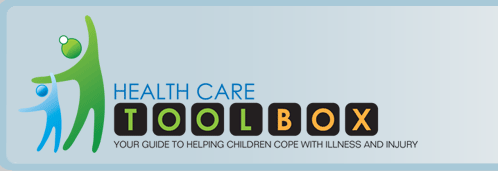Understanding Subjective Experience and Beliefs
Medical providers caring for ill and injured children will encounter children’s and parents’ beliefs about:
- the actual or perceived life-threat
- the impact of this injury or illness on the child, family, and future
- how best to protect oneself or one’s child from further danger
- one’s ability to cope with things such as painful treatments.

Many medical events are frightening, painful, or uncontrollable, and it is not surprising that they can trigger emotional distress and traumatic stress reactions. But the characteristics of the event itself are not the only things that determine how an individual will respond.
Much of the research on traumatic stress suggests that in addition to the person’s subjective experience of the event, their beliefs* (about the illness or injury and its meaning, about how and whether they can cope, about what they can control, etc) are key to traumatic stress responses.
(*Although faith and culture play a large role in forming our beliefs about illness, coping, pain, and end-of-life care, the term “belief” here is not meant to denote particular religious or cultural beliefs.)
One way to understand these underlying beliefs is to try to pay attention to our own (and others’) “self-talk”. Self-talk is the running conversation we have in our head, and is completely normal. Self-talk tells us how to think about and respond to events and how to cope. Self-talk often occurs automatically and without our awareness.
 When difficult events occur, self-talk gets activated. We take in (perceive) what is going on, and then discuss in our head what it means and how we should respond. This self-talk and our beliefs influence how we then feel, behave, and relate to others.
When difficult events occur, self-talk gets activated. We take in (perceive) what is going on, and then discuss in our head what it means and how we should respond. This self-talk and our beliefs influence how we then feel, behave, and relate to others.
How self talk influences our...
- Feelings: Believing “our dreams for our child’s future have been shattered” may lead to feelings of hopelessness.
- Behavior: Believing “laughter will get us through this” may lead to using humor as a coping mechanism during treatment.
- Ways of Relating: Believing “I’m alone in this” or “no one can understand what I’m feeling” may lead to avoiding potential social supports and withdrawal from others.
Self-Talk in Medical Settings
When an injury or illness happens, self-talk and beliefs usually focus on responding to life-threat, protecting oneself or one’s child, and regaining control. Trauma-triggered beliefs are not problematic in and of themselves, but they can lead to feelings, behavior, and ways of relating that become problematic for the individual or for those around them.
Case Example: Avoidance
It is common for children and families to want to avoid painful procedures, ongoing medical or pharmacological treatment, or places or things that remind them of the illness or injury, especially if the child is beginning to feel better. Traumatic stress reactions can include avoidance that gets in the way of ongoing medical care.
The self-talk that goes with avoidance might include:
- "We’ve been through enough."
- "I’m feeling better, why do I need to go through this?"
- "It’s not fair; I didn’t do anything wrong, but I feel I’m being punished."
- "I don’t want to go back to that place."
- "I just don’t think I can bear the memories that it brings up."
- "What if they find something else wrong?"
The underlying message of the self-talk: "I’m overwhelmed; I’m tired of feeling physical and/or emotional pain; I’m feeling singled out; I’m worried and I’m not sure I can handle much more."
These are all valid thoughts and concerns in the face of serious illness and injury.
How Providers Can Help
Providers can help by first validating the underlying message ("I understand that this is difficult and you’re feeling overwhelmed; tell me how I can help you.") and then reinforcing the parts of the child’s or family’s beliefs that will allow them to better manage the situation without avoidance.
Key aspects of these more adaptive beliefs include:
- Accepting the uncontrollable
- "Even though it’s upsetting, facing my / my child’s painful treatments or reminders is part of the healing process."
- Focusing on the controllable:
- "I can still do things to comfort and take care of myself / my child."
- Identifying and Acknowledging Strengths:
- "I have faith we can get through this. I can take each painful treatment or reminder one day at a time."
- Using the Positive
- "I didn’t realize how strong I am / my child is. We’ve grown closer as a family."
Children and families who identify these other beliefs often find that fears and avoidance, while painful and distressing at times, are also manageable.



